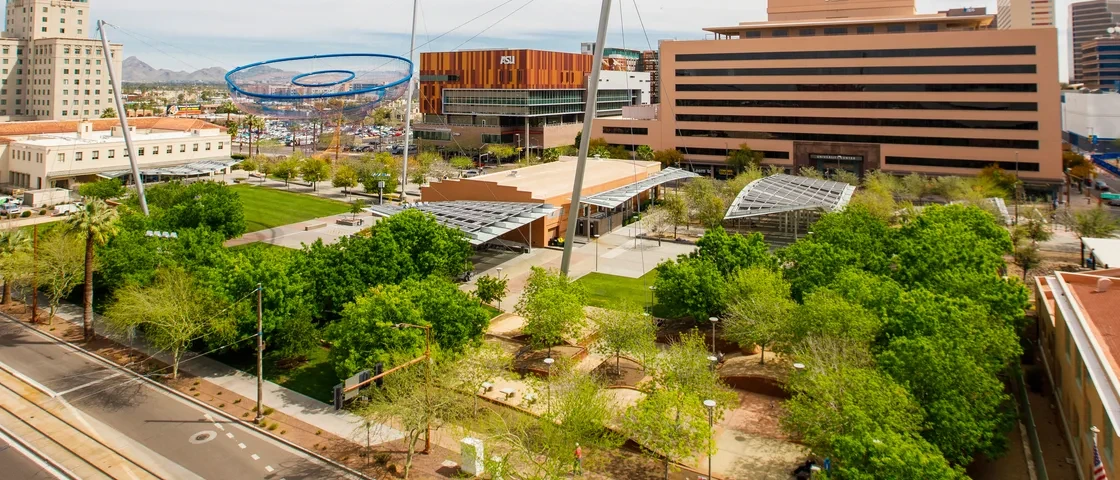

Arizona State University (Downtown Phoenix campus)
Community Resources and Development (Sustainable Communities), MS
Study detals
: Master's degree : Community Resources and Development (Sustainable Communities), MS PPCRDSCMS : Full time : 24 MonthRequirements
- Applicants must fulfill the requirements of both the Graduate College and the Watts College of Public Service and Community Solutions.
- Applicants are eligible to apply to the program if they have earned a bachelor's or master's degree in a related discipline from a regionally accredited institution.
- Applicants must have a minimum GPA of 3.00 (scale is 4.00 = "A") in the last 60 hours of their first bachelor's degree program, or they must have a minimum cumulative GPA of 3.00 (scale is 4.00 = "A") in an applicable master's degree program.
All applicants must submit:
- graduate admission application and application fee
- official transcripts
- statement of professional and academic goals
- three letters of recommendation
- current resume
- proof of English proficiency
Additional Application Information
An applicant whose native language is not English must provide proof of English proficiency (TOEFL 80 (no band below 20) (IELTS 6.5 at least 6.0 in all skills)) regardless of their current residency.
Only complete application files are reviewed or considered for admission. Applicants without undergraduate academic work in related disciplines are required to take six credit hours of deficiency coursework in addition to the master's degree requirements. Deficiency coursework may be taken in conjunction with master's degree classes.
Additional information
Program description
Degree awarded: MS Community Resources and Development (Sustainable Communities)
The MS in community resources and development with a concentration in sustainable communities is a research-oriented master's degree program designed to prepare students for their future careers by teaching them to analyze and understand critical topics and issues pertinent to the fields of tourism; parks and recreation management; nonprofits and nongovernmental organizations; and sustainable communities.
Students benefit from the commitment of faculty mentors who teach how to approach and solve problems through the lens of community solution analysis: considering all regulatory, policy and relationship factors for making informed decisions.
On average, completion of the master's degree program in community resources and development requires two years of study.
Accelerated program options
This program allows students to obtain both a bachelor's and master's degree in as little as five years. It is offered as an accelerated bachelor's plus master's degree with:
- Community Sports Management, BS
- Community Sports Management (Events), BS
- Nonprofit Leadership and Management, BS
- Parks, Recreation and Sport Management, BS
- Recreation Therapy, BS
- Tourism Development and Management, BS
- Tourism Development and Management (Meetings and Events), BS
- Tourism Development and Management (Resort and Hotel Leadership), BS
- Tourism Development and Management (Sustainable Tourism), BS
- Acceptance to the graduate program requires a separate application. Students typically receive approval to pursue the accelerated master’s during the junior year of their bachelor's degree program.
Program learning outcomes identify what a student will learn or be able to do upon completion of their program. This program has the following program outcomes:
- Analyze critical topics and issues pertinent to sustainable communities, such as creative problem-solving, strategic planning and volunteer management.
- Relate their individual strengths to demonstrate knowledge of research methods and data analysis within the context of sustainable communities.
- Apply the principles and practices of community development to address the social, economic, environmental and cultural challenges of diverse communities.
This degree program prepares graduates for careers in governmental agencies, nonprofit organizations and private-sector businesses. Career opportunities include:
- community services officers
- nonprofit and nongovernmental organization officers
- parks and recreation officers
- tourism officers